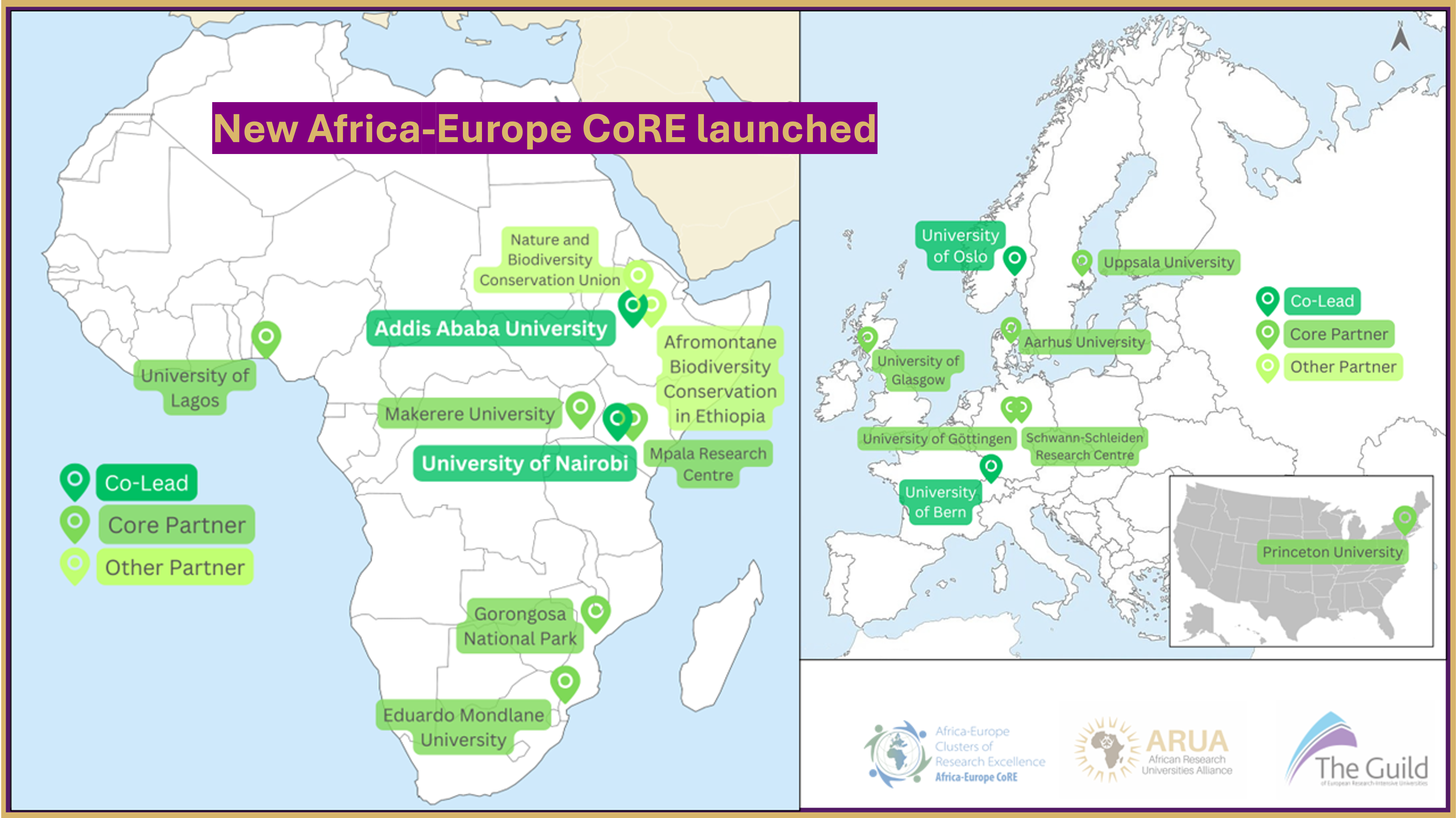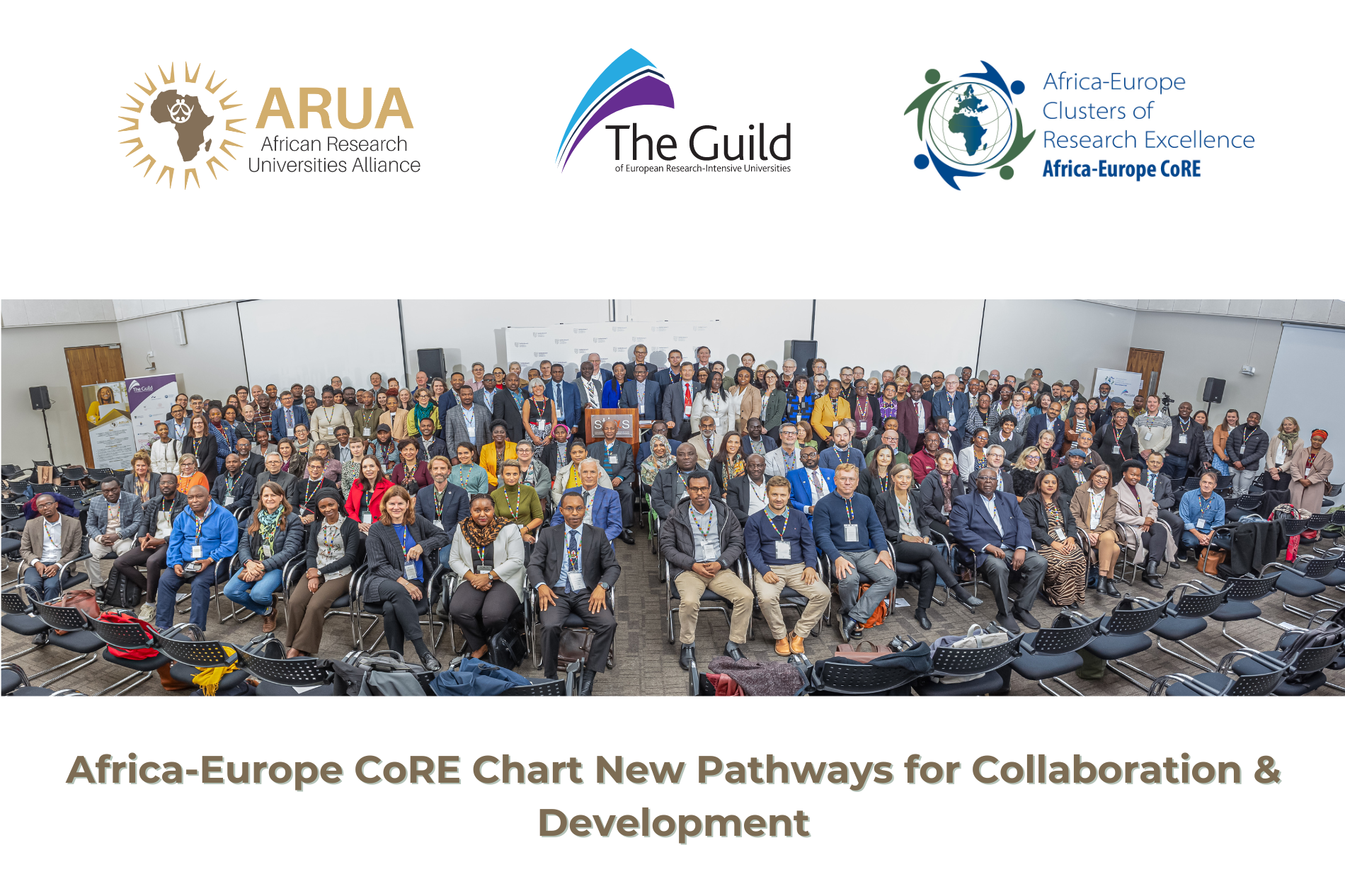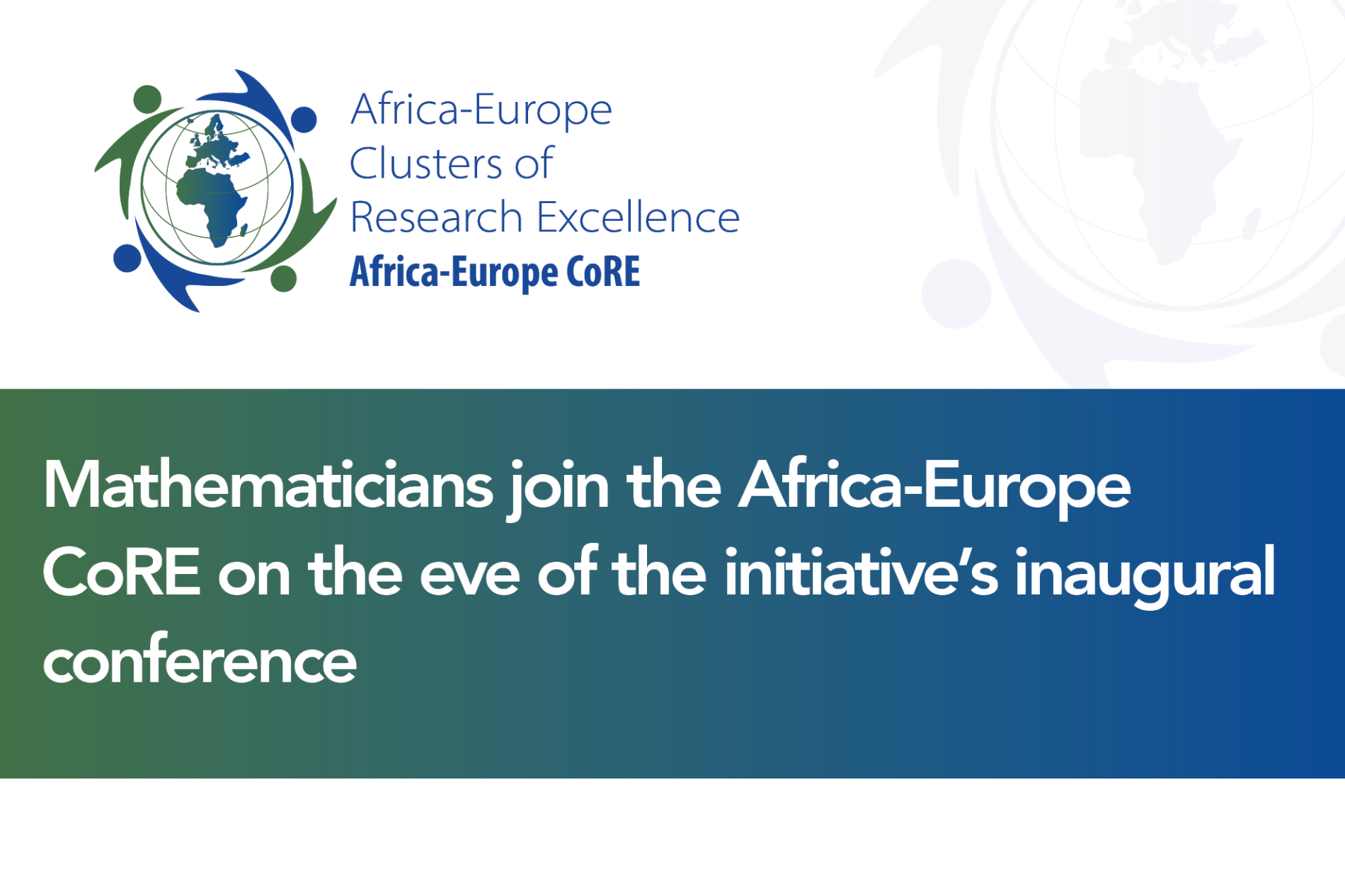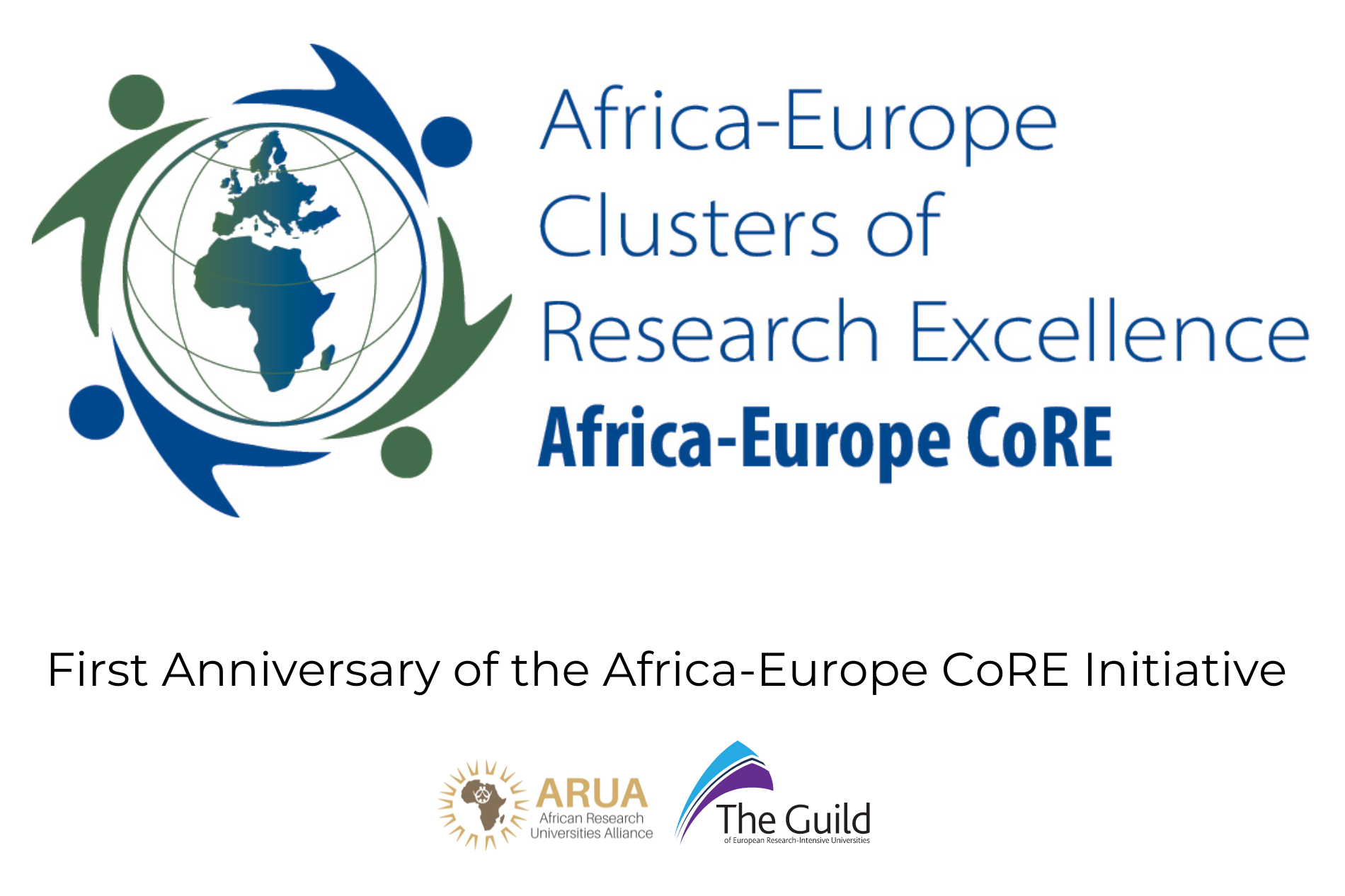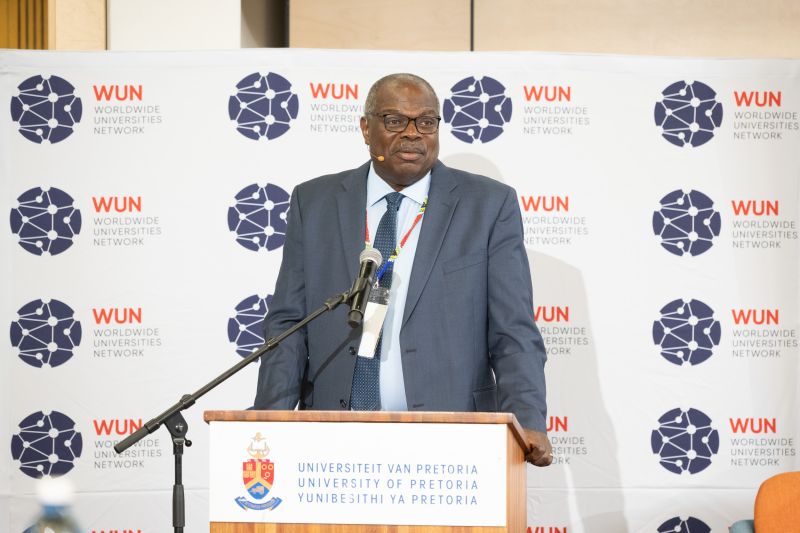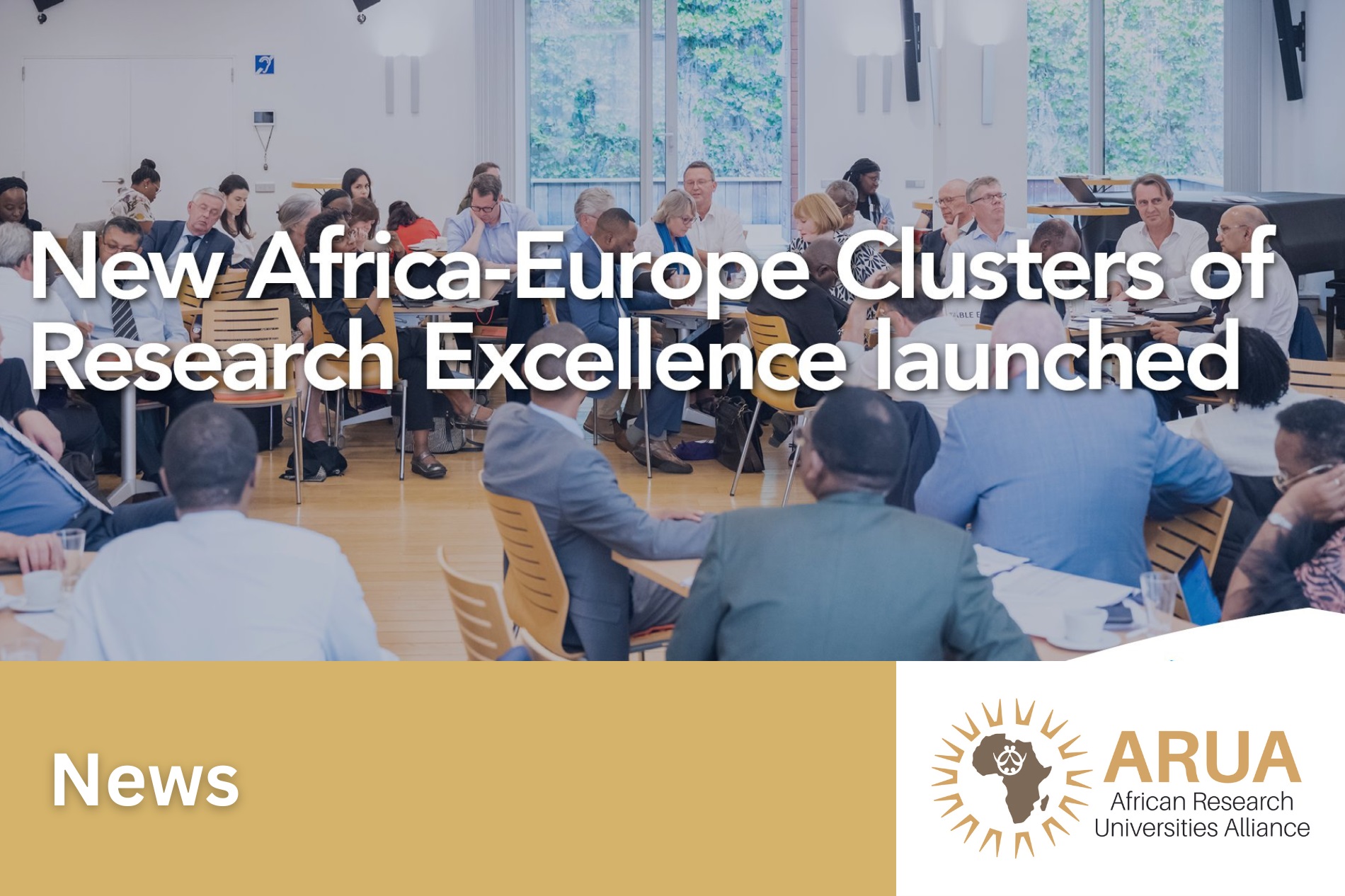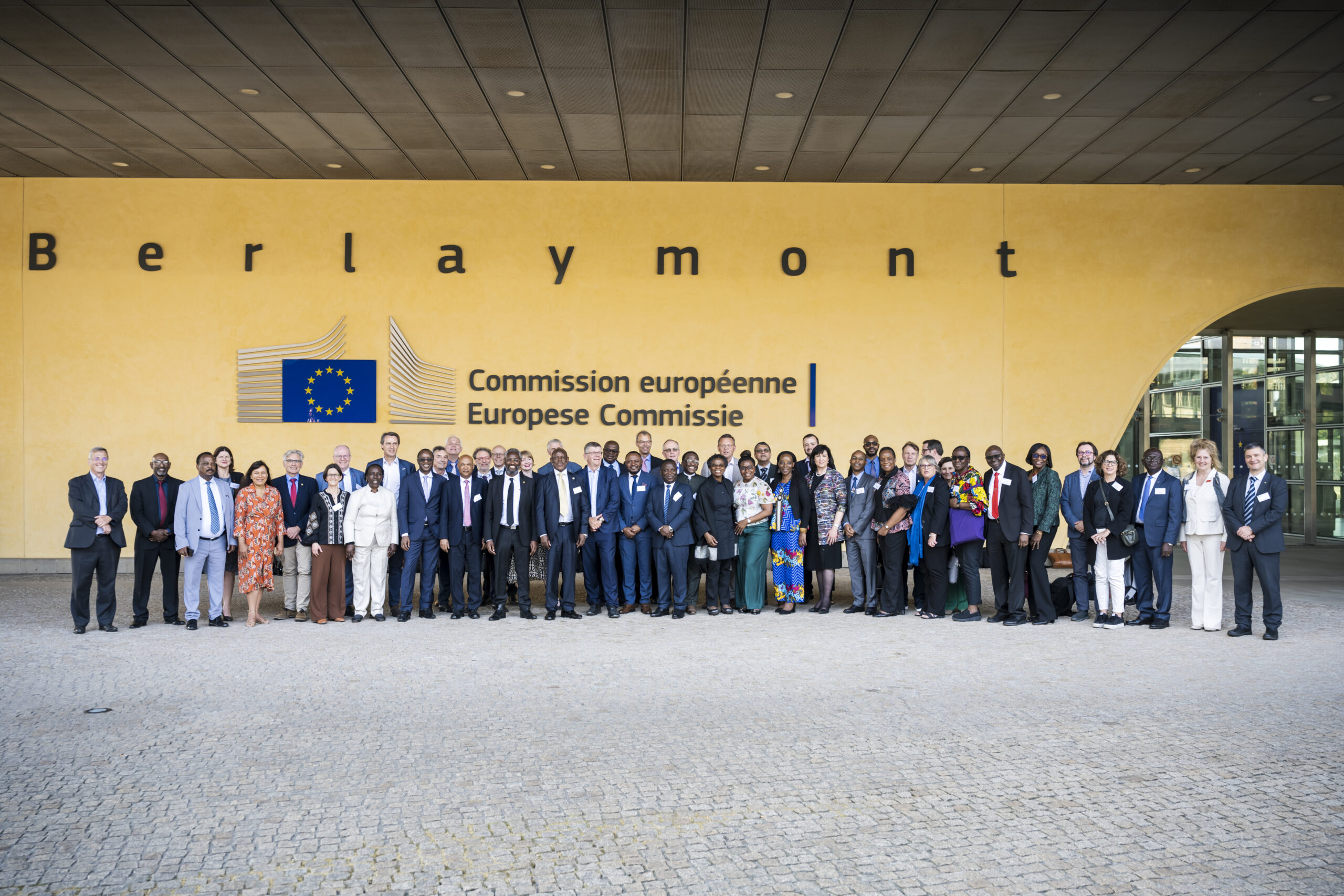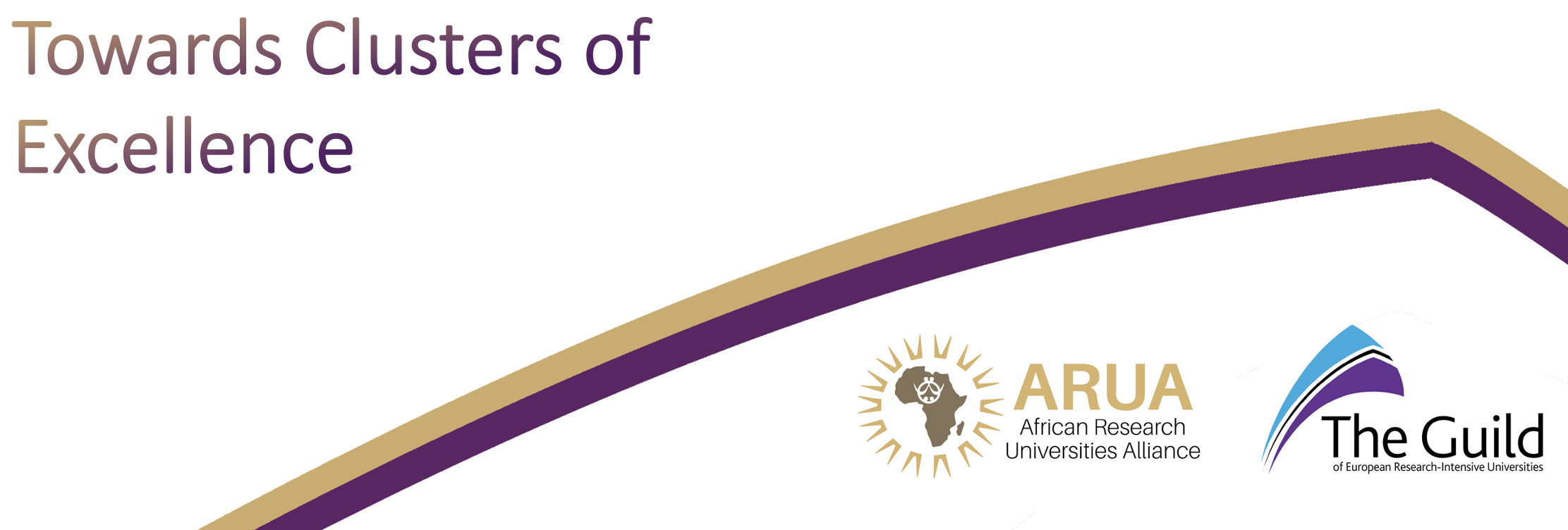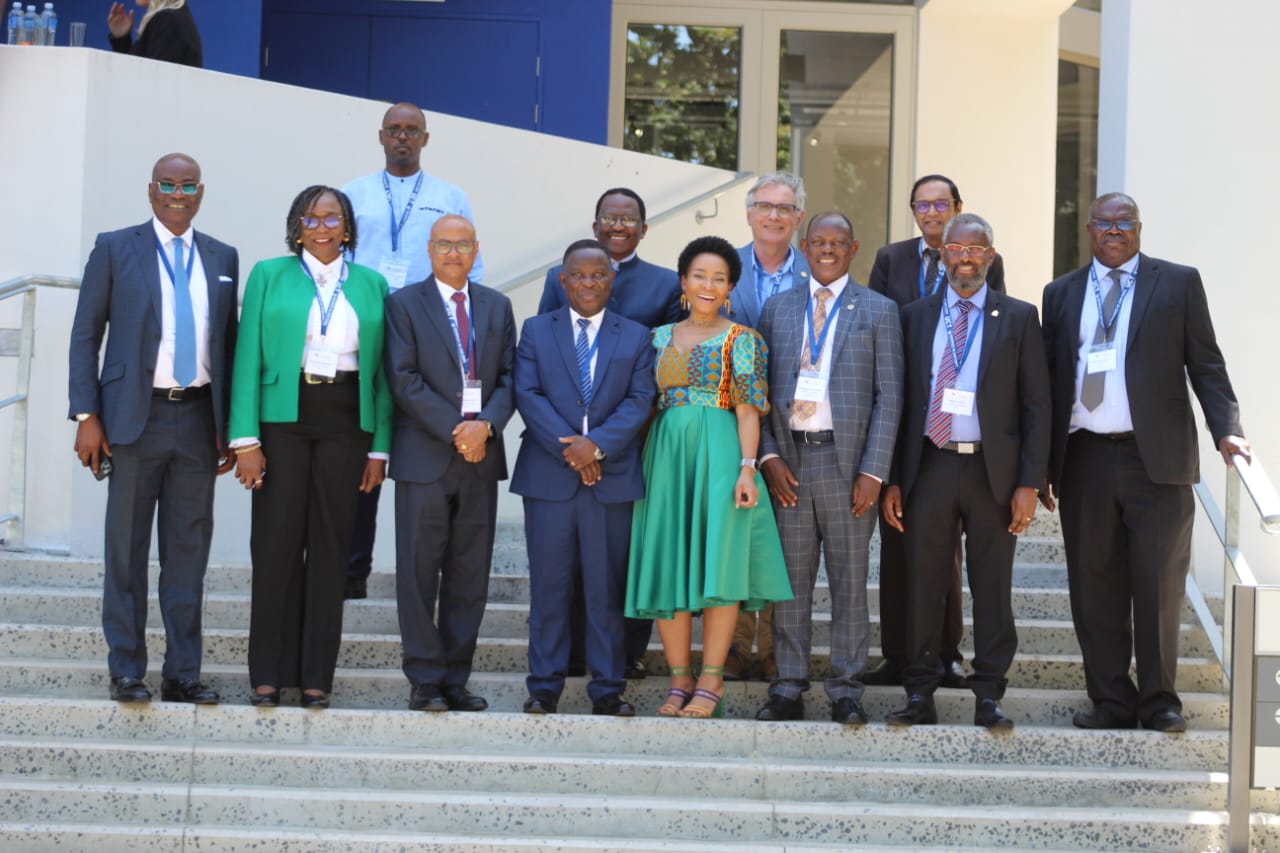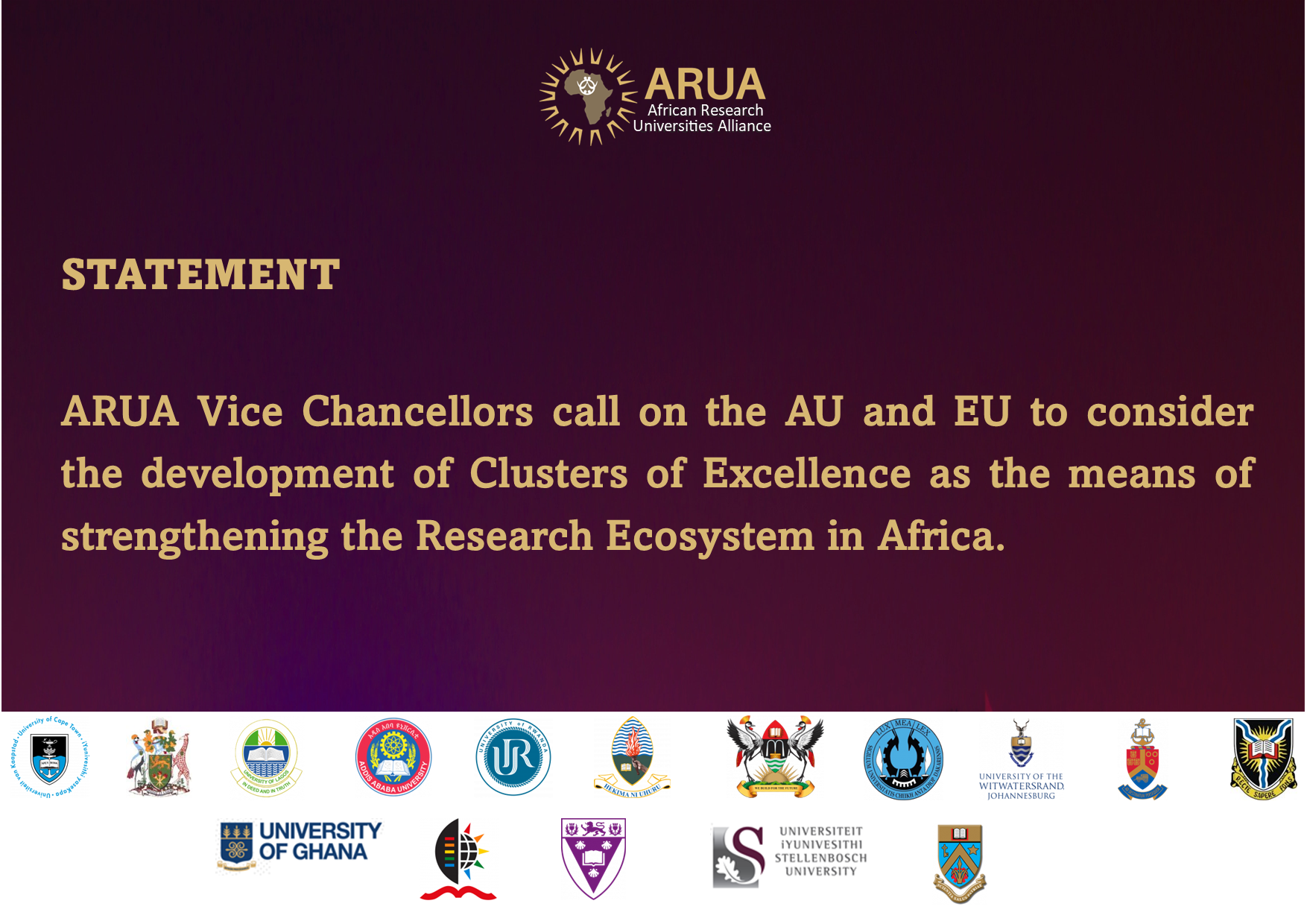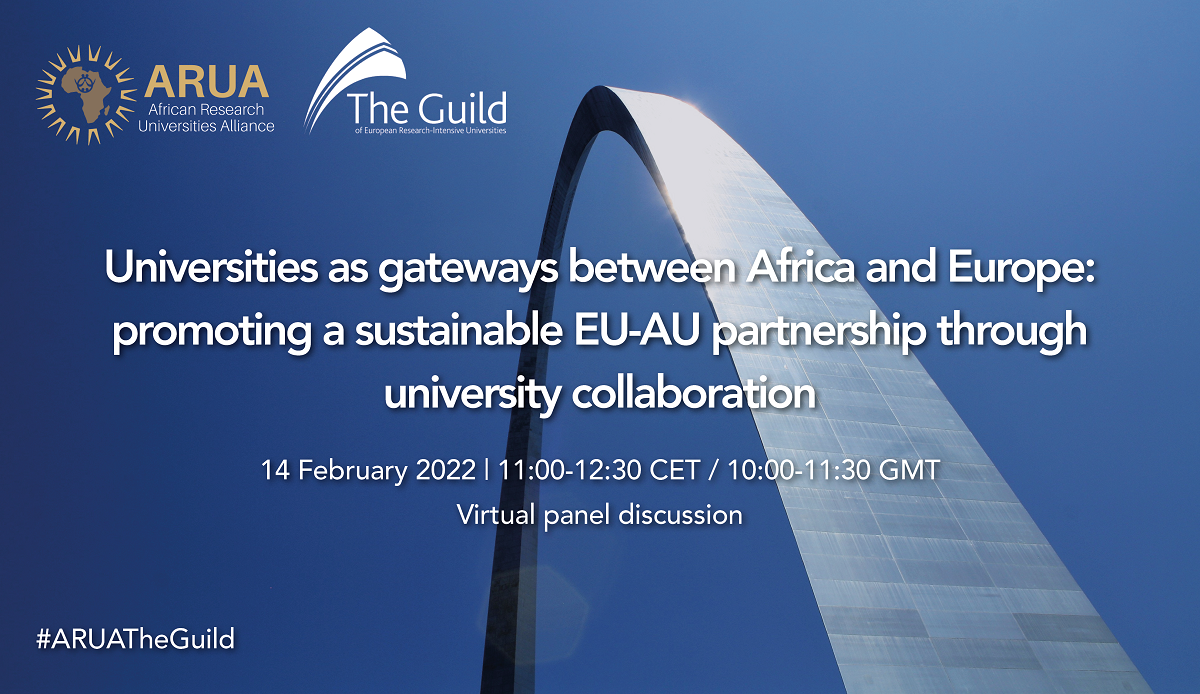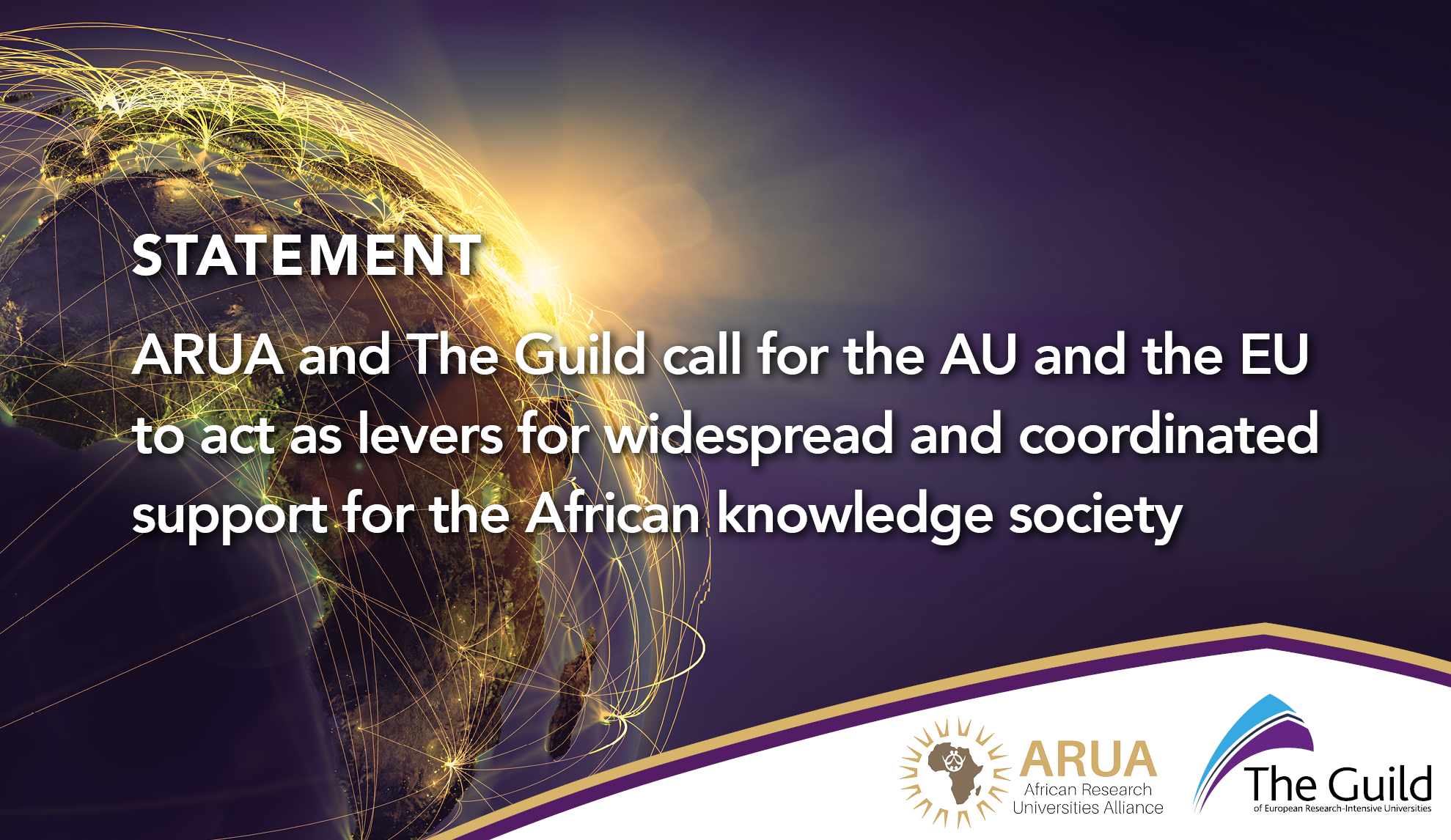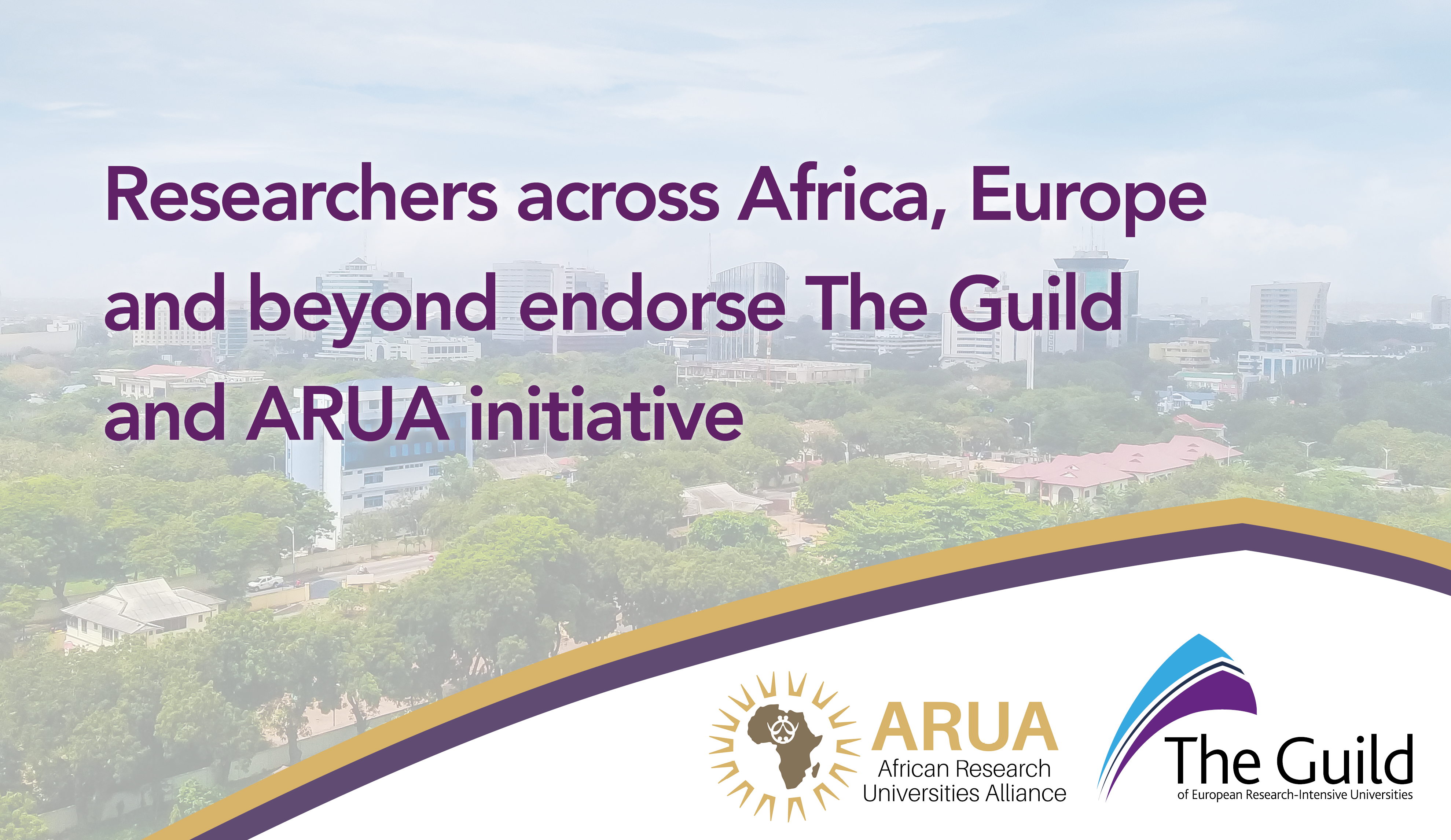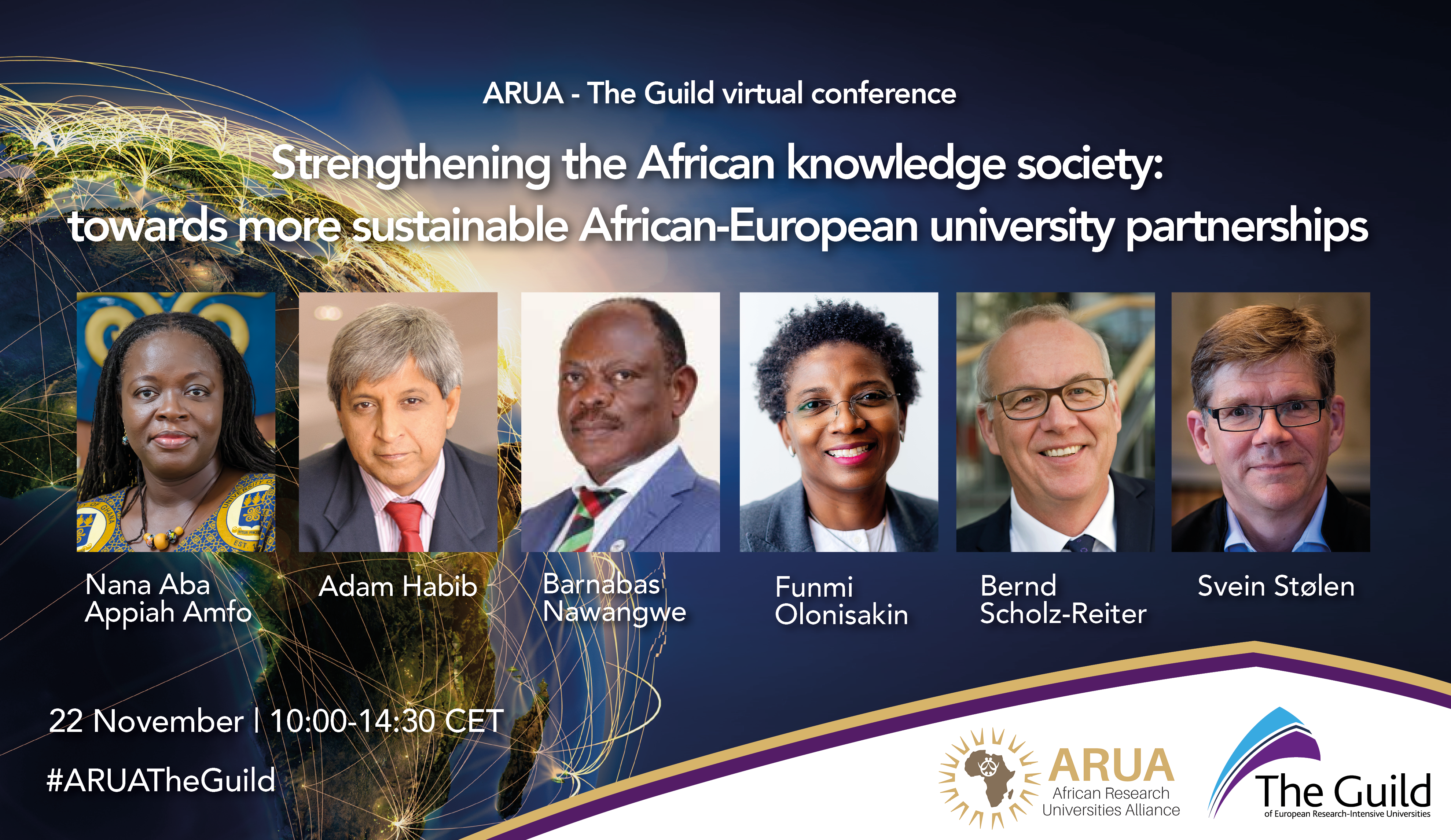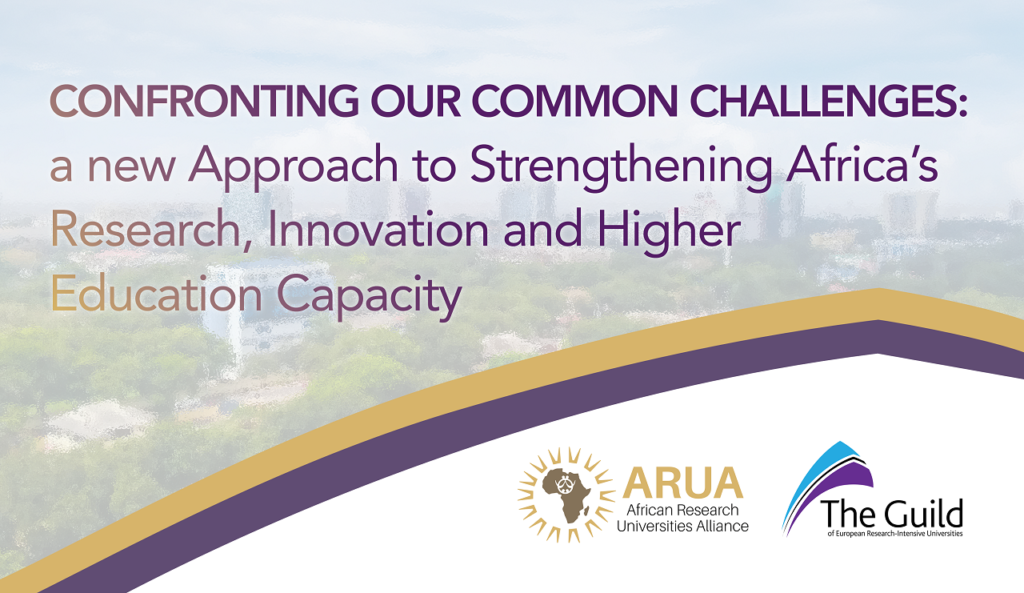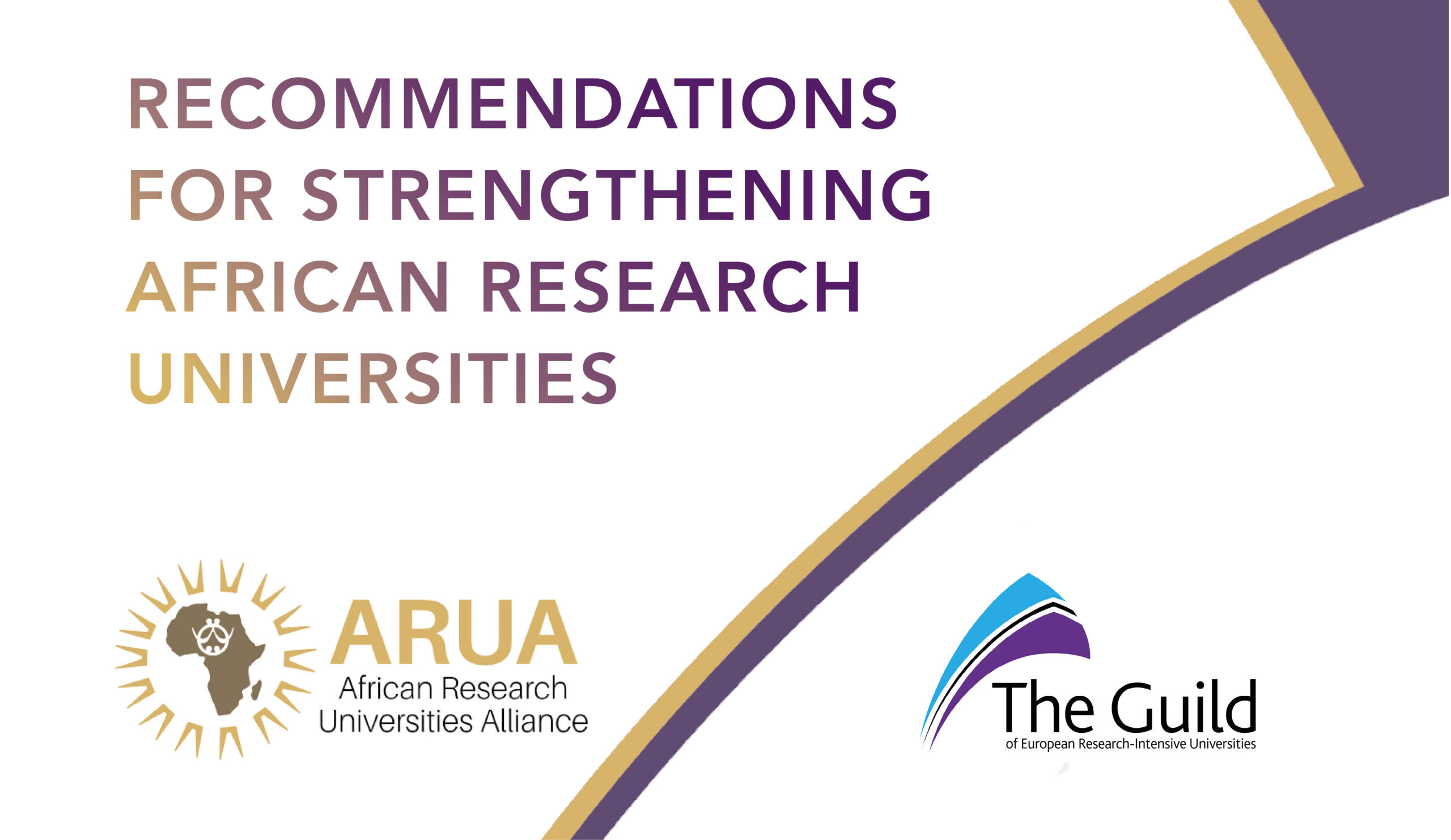
A shared vision for Africa and Europe
From global disparities to transformative collaboration: principles of equitable partnerships for a sustainable future put into practice together
The Africa-Europe Clusters of Research Excellence initiative, led by the Africa Research Universities Alliance (ARUA) and The Guild of European Research-Intensive Universities (The Guild), was officially launched when the first Clusters of Research Excellence (CoRE) were established in June 2023.
A CoRE is a bespoke, academic-led partnership involving institutions from Africa, Europe and beyond. These collaborations are planned for a decade and focus on research, innovation, education, and capacity-building activities. These activities are designed to tackle shared socio-economic and scientific challenges faced by both continents. This approach addresses challenges across the short, medium, and long term, as outlined in the AU-EU Innovation Agenda.
Although the initiative is jointly led by member universities of ARUA and The Guild, the CoREs are open to and inclusive of academic and non-academic organisations beyond these networks that are committed to research excellence.
Each CoRE aims to promote equity in a world marked by deep inequalities, influencing how decisions are made, activities are conducted, funding is distributed, and how credit and value for outputs are shared among collaborators. Every outstanding academic involved in the CoRE is committed to leveraging excellent research and higher education to contribute to the development of thriving and prosperous societies.
Currently, the initiative encompasses 22 Clusters, involving over 250 researchers from more than 60 universities and research institutes across 42 countries.
CoRE Guidelines
The CoRE Guidelines compiles documents that were co-developed by ARUA and The Guild to establish and implement this initiative.
A new strategy for Africa-Europe science collaboration
ADDRESSING GLOBAL SCIENCE INEQUALITIES
Africa’s share
Just under 8% of global science production
Growth
Significant progress over the last 20 years
Concentration
45% of production in South Africa and Egypt
Top universities
Only 4 African institutions in global top 500 (all in South Africa) despite population of 1.3 billion on the continent, which is projected to double by 2050
SDG impact
Only 3.8% of climate research funds reach Africa; 78% goes to non-African researchers
Health breakthroughs
Africa’s genomic diversity is vast, yet only 2% of recorded genomes are African.
Funding inefficiencies
Misalignment
Funding often reflects donor priorities:
Non-Communicable Diseases (67% of deaths) receive 1% of health funding;
TB, malaria, HIV (7% deaths) receive 39% of funding
Key facts about Africa-Europe CoREs
23
African research universities
23
European research-intensive universities
22
CoREs up and running with 120 institutions across 42 countries in Europe, Africa, and beyond.
Guiding principles
- Equity in collaboration
- Brain circulation – mutual exchange of knowledge and expertise
- Capacity-building – strengthening research capabilities
- Long-term approach – sustainable, enduring partnerships
Reported achievements from our first year
- 65 funding applications submitted
- Over 48 public events organised by CoREs or with CoRE participation
- 37 publications underpinned by CoRE activities
Features of all Africa-Europe CoREs

Sustainable Development Goals (SDGs):
Focused on impactful scientific solutions for societal transformation

Scientific Excellence:
Leading researchers from both continents address priority research challenges

Equity:
Fair credit, funding, and collaborative research across regions

Inclusion:
Involves researchers from 120 institutions across 42 countries, going beyond ARUA and The Guild networks

Long-term focus and institutional support:
Institutional commitments from universities to support long-term goals and Cluster priorities. Bottom-up approach where researchers define priorities, backed by university leadership

Brain circulation and capacity-building:
Developing inclusive postgraduate education frameworks that promote lasting improvements in Africa’s research capacity
Towards Equity in Global Science
The Africa-Europe CoREs aim to address societal needs through innovative collaborative partnership which can be a vehicle for change, inviting funders, researchers, policy-makers, business, and civil society to join forces to carry out new, effective action. What are the key needs?
Supportive funding:
New models to foster Africa-focused doctoral schools and globally networked graduates
Inclusive research funding:
Backing for groundbreaking projects that engage researchers across Africa
Research infrastructure:
Investments in accessible facilities through Africa-Europe Clusters
Societal engagement:
Encouraging collaboration with policy-makers and businesses to tackle shared challenges
ARUA and The Guild
Strategic advocacy for long-term, equitable Africa-Europe research partnerships.
2020
-
Joint Call
A call for African Union (AU) and the European Union (EU) leaders to support an ambitious new initiative for Africa’s universities to address the profound demographic, social and environmental changes facing both continents. Read more
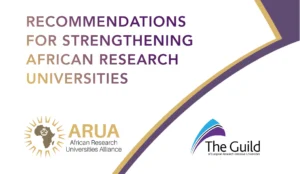
-
Joint concept note
Calling for excellent research at the heart of confronting common challenges faced on both continents. Read more
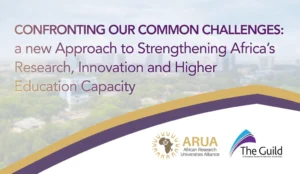
2021
-
Joint call
Increase Africa’s research capacity through: long-term collaboration and investment in science infrastructure. Read more
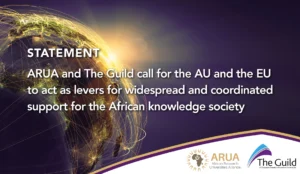
2022
-
Statement from ARUA VCs
A call for the strengthening of Africa’s research ecosystem through support for Clusters of Excellence. Read more
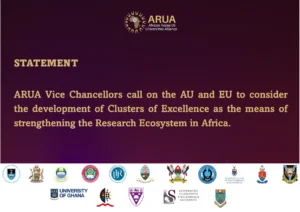
2023
-
Joint statement
Welcoming the AU-EU Innovation Agenda focus on equitable, long-term partnerships with brain circulation and capacity building. Read more
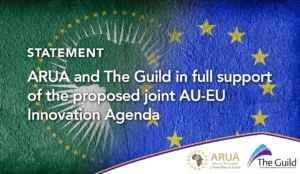
-
Sectoral call for action
2,000 universities and research institutions call for actions towards better integrated Africa-Europe funding programmes. Read more
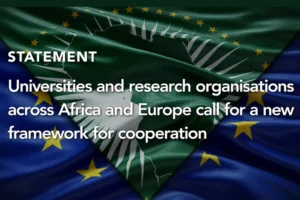
-
AU-EU Innovation Agenda
Intercontinental framework for R&I adopted. Read more
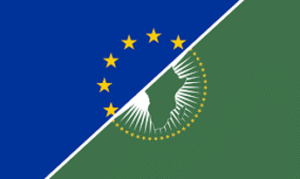
-
Clusters of Research Excellence
Africa-Europe Clusters of Research Excellence (CoRE) established by ARUA & The Guild in Summer 2023. 120 institutions across 42 countries in Europe, Africa, and beyond. Listed on the Dashboard of Initiatives of the AU-EU Innovation Agenda
2024

-
First conference
Commitment to Africa 2063 Agenda and EU’s Global Gateway. In September 2024, +250 researchers from over 49 institutions across more than 27 countries in Africa, Europe and beyond gathered in South Africa. Find out more
Clusters of Research Excellence
 Public Health
Public Health
Advanced Infectious Diseases Research and Training
Food Environment Actions for the Promotion of Health
Health, Gender and Sexualities
Non-Communicable Diseases and Multimorbidity
Preparedness and Response to Pandemics and Shocks
Translational Research in Infection Immunity and Inflammation
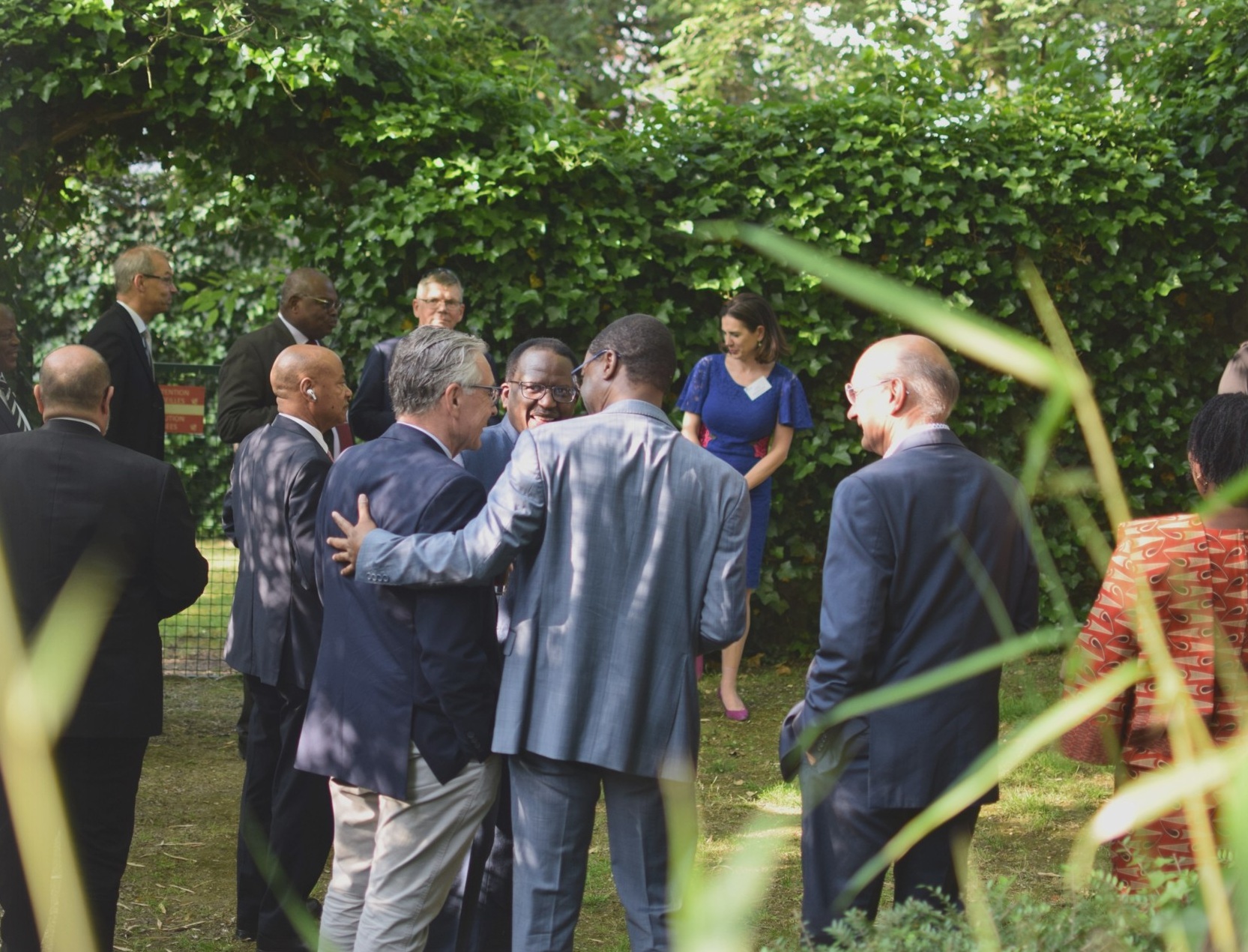
From global disparities to transformative collaboration: principles of equitable partnerships for a sustainable future put into practice together
CONNECT
with CoRE’s academic co-leads to build project consortia or enquire about joining as a CoRE member
CONTRIBUTE
best practice ideas for collaboration across Africa and Europe
CREATE
Funding opportunities for multilateral collaboration on both continents, incentivize equity and long-term action based on R&I excellence
INVEST
in African R&I infrastructure & intercontinental doctoral networks
For more information, please contact:
ARUA
John Gyapong, ARUA Secretary-General
Email: jgyapong(at)arua.org
Emmanuel Abbey
Email: enabbey(at)arua.org
The Guild
Jan Palmowski, The Guild Secretary-General
Email: jan.palmowski(at)the-guild.eu
Sean Rowlands
Email: sean.rowlands(at)the-guild.eu
Relevant Sources:
- NCD Alliance, 2022. Invest to Protect: NCD Financing as the Foundation for Healthy Societies.
- Sooryamoorthy, R., 2022. Science in Africa: Contemporary Trends in Research. Journal of Scientometric Research.
- Times Higher Education, 2023. World University Rankings 2024.
- Ziervogel, G. et al., 2022. Climate Change in South Africa: IPCC Sixth Assessment Report. South African Journal of Science.
